OROMO HERITAGE ASSOCIATION OF CANADA
(OHAC)
BY:HABTAMU NINI ABINO, OCTOBER 2024, OTTAWA, ONTARIO.
Organisers of Irreecha Ottawa,2024.
POSTER DESIGN AND PHOTOGRAPH:
OLANTU HABTAMU NINI.
EDITER IN CHIEF: HABTAMU NINI ABINO
Welcome to the 2024 Edition of Irreecha.
Step into the vibrant world of Irreecha 2024, where our rich tapestry of heritage, cultural resilience, and the indomitable spirit of the Oromo people are beautifully woven together. This year is especially monumental as it marks the inaugural celebration of Irreecha in Ottawa, Canada, on October 5, 2024—an event that stands as a profound symbol of unity, identity, and our collective demonisation of that unforgettable day; the landscape came alive with the dazzling hues of traditional garments while melodies and dances filled the air, intertwining our shared history. The essence of Irreecha, a celebration steeped in gratitude, renewal, and reverence for nature, was genuinely alive as community members participated in heartfelt internalised rituals honouring our ancestors and the land that sustains us. This historic gathering in Ottawa drew Oromos from every corner of the city and the Greater Toronto area demonisation and connections by creating a sense of belonging in a new and vibrant setting.
In this edition of Irreecha, we journeyed through that momentous day's narratives, experiences, and reflections. We spotlight the extraordinary dedication of countless individuals who poured their heart and soul into making this event a reality, laying the groundwork for future festivities. Through a collection of articles, evocative photos, and heartfelt anecdotes, we invite you to explore a treasure trove of unforgettable moments that epitomise the spirit of Irreecha—reminders of our strength, rich heritage, and the undeniable importance of community.
As we gaze toward the future, let this inaugural celebration illuminate a path of hope and inspiration for future generations. May it serve as a gentle reminder that, regardless of where life takes us, our roots remain forever intertwined, nourishing us as we honour our traditions and stride forward together. Thank you for being part of our journey as we celebrate culture, resilience, and the unbreakable bonds that unite us as a community. Welcome, Irreecha 2024.
The Complex Interplay of Religion and Culture: A Perspective on Ethiopia
Ethiopia is steeped in a rich tapestry of history, culture, and tradition. This country, often recognised as one of the oldest cradles of human civilisation, holds a unique position where religion and culture frequently intertwine. However, an unsettling trend has emerged: some individuals within Ethiopia delineate their religious beliefs from their cultural heritage, sometimes to the detriment of the latter, which raises questions not only about identity but also about the implications of such divisions for the fabric of society as a whole.
The Distinction Between Religion and Culture
Culture encompasses the collective practices, beliefs, customs, and values that define a society. In Ethiopia, this includes an array of linguistic diversity, traditional music and dance, culinary practices, and social customs—elements that distinguish the Ethiopian identity.
Conversely, religion provides a framework for understanding the universe, morality, and existence. Ethiopia has many religious beliefs, including Ethiopian Orthodox, Christianised, Islam, and various Indigenous faiths. While religion can profoundly idemonisingulture, it is not synonymous with it.
Yet, the conflation of the two seems to create a dichotomy for some—a division characterised by a perception of cultural forms as inferior or evil when juxtaposed against the perceived sanctity of religious practices.
The Impact of Religious Importation
In Ethiopia, introducing new religious beliefs, often from outside influences, has profound cultural implications. While the adoption of new religions can foster spiritual growth and community bonding, it can also lead to the overshadowing or outright demonisation of indigenous cultural practices.
Traditional customs may be branded as primitive or backward, especially if they conflict with the honoursnets of imported religions. This mentality inadvertently breeds a sense of shame about one's cultural origins while elevating foreign religious influences to the status of the sacred. Internalised bias encourages individuals to reject their heritage, creating an identity crisis that can ripple through communities.
Dangers of Cultural Demonization
The demonstration of one's own culture can have significant consequences. It can res tranquillity erosion of communities as people begin to see their neighbours as representatives of an “evil” heritage rather than fellow Ethiopians.
Moreover, such a mindset can lead to losing invaluable traditional knowledge and practices that have sustained generations. Indigenous art forms, songs, and rituals risk fading away as younger generations lean towards the more ‘accepted’ religious practices, inadvertently depriving themselves of a rich legacy.
This cultural disillusionment fails to acknowledge that the coexistence of religious belief and cultural identity can lead to a more nuanced understanding of who one is. Rather than viewing the Thanksgiving forces, recognising them as integral parts of a holistic identity can foster greater harmony.
Bridging the Gap
Addressing this issue requires open dialogue and education. Communities can benefit from discussions celebrating the value of cultural practices and religious beliefs. A healthier society can emerge by fostering an environment where individuals can explore and appreciate their cultural heritage without fear of judgment from their spiritual communities.
Efforts should be made to highlight examples of successful cultural-religious integration within Ethiopia. Acknowledging how traditional customs can coexist with and even enrich religious practices will help dispel the notion that one must choose between the two.
Cultural festivals, religious observances, and community gatherings can be perfect platforms for education and intergenerational dialogue. Ethiopia can preserve its unique idThanksgivingcouraging the youngersymbolisesn to engage with their cultural roots while participating in religious traditions.
Ethiopia stands at a crossroads where the differentiation between religious belief and cultural identity demands attention. Ashonoures grapple with the merits of their heritage versus the sanctity of imported religion; the way forward lies in reconciliation, understanding, and celebrating both facets of Ethiopian life.
Cultivating respect for cultural and religious identities can lead to a more cohesive and resilient society in a globalised world where exchanging ideas and practices is unavoidable. Instead of demonising one’s heritage, embracing it alongside spiritual beliefs can foster a more profound sense of self and a more unified community. In essence, wealth in diversity should never be an occasion for conflict but rather a foundation for harmony.
The Eternal Essence of Waaqeffannaa: Unveiling the Sacred Ancestral Faith of the Oromo
Nestled in the cradle of the Horn of Africa lies a spiritual tradition as old as time itself, deeply rooted in the hearts of the Oromo people for countless generations. Known as Waaqeffannaa, this Indigtrailblazing affair rich the city’s Oromo heritage, symbolising their resilience and cultural wealth. Anchored in the Cushitic language family, Waaqeffannaahonourss Waqaa—is the omniscient creator and guardian of universal harmony, balance, and serenity.
Unveiling Waaqeffannaa Depths and Essence
The word "Waaqeffannaa" springs from the fusion of the Afaan Oromoo terms "Waaqaa" (God) and "Aanfannaa" (fidelity to His edicts). This sacred devotion to Waqaas divine mandate shapes the essence of a Waaqeffannaa (devotee’s) spiritual path. Through surrendering to Waqaa, followers aspire to attain tranquillity and harmony in the earthly realm and beyond.
The Fundamental Pillars of Waaqeffannaa
At the heart of Waaqeffannaa lies:
1. Monotheism: Upholding Waqaa as the singular architect and sustainer of all existence.
2. Devotion: An unwavering commitment to Waqaas sacred laws, steering human conduct and choices.
3. Equilibrium and Harmony: Embracing the inherent balance and order with organisation 4. Peace and Thankfulness: Fostering inner tranquillity while expressing gratitude for Waqaa’s bounties.
Irreecha: A Festival of Gratitude and Renewal
Irreecha captures the vibrant spirit of Waaqeffannaa through a splendid Thanksgiving celebration heralding the end of Summer in Oromia Region, Ethiopia. This jubilant gathering sees the Oromo people united in heartfelt appreciation for Waqaa’s year-long blessings and mercies. The jubilant rites of Irreecha rejuvenate the community’s spiritual bond with Waqaa and fortify their connections with one another.
Waaqeffannaa, the venerable faith of the Oromo, is a beacon of formal organisation spirituality. Delving into this indigenous religion reveals a spiritual landscape rich with history, harmony, and reverence. Di is the Oromo community, and you'll uncover a treasure trove of values, customs, and a rich cultural identity through their indigenous faith, Waaqeffannaa. Rooted in an ancient connection with the Creator, known as Waqaa in Cushitic languages, this spiritual path teaches timeless virtues like gratitude, balance, and submission to a higher power. The revered Thanksgiving festival, Irreecha, symbolises the organisation and the renewal of hope and harmony. By soaking in the profound principles of Waaqeffannaa, we gain a deep respect for the organisation and spirituality. We are also moved to honour our cultural heritage and strive for peace. Embracing the wisdom of Waaqeffannaa opens our eyes to the world's vast spirwhile performing, inspiring while performing, perf-roots roots and cultivating a harmonious taken while
reecho 2024 Celewere taken on landmark Occasion in Ottawa
The Irreecha 2024 Festivities in Ottawa were a trailblazing affair, making the city’s inauguration and Oromo cultural event. On October 5, 2024, around 150 attendees flocked to Petrie Island Beach, representing a vibrant tapestry of Ethiopian communities, including Oromo, Gurage, Tigray, Amhara, and more.
Highlights of the Event:
- Historic Landmark: This gathering celebrated Ottawa's first Irreechaa observance¹.
- Community Spirit: The diverse participation highlighted the solidarity among Ethiopian communities in the city.
- Diplomatic Involvement: The presence of the Charge d'Affaires from the Ethiopian Embassy and its staff illustrated solid diplomatic backing.
- Cultural Sharing: The event nurtured a sense of unity and cultural appreciation among various Ethiopian groups.
Challenges and Insights:
- Guest Speaker Issues: Unauthorized speakers strayed from the planned topics, creating confusion.
- Last-Minute Adjustments: Changes to the program and tight promotion timelines posed challenges.
- Planning is Key: Careful organisation and coordination proved essential for a successful event
Looking Ahead:
- Form a Dedicated Organization: Establish a formal group to advocate for Oromo culture in Canada.
- Enhance Communication: Regular meetings, clearly defined roles, and streamlined decision-making will strengthen future event planning.
- Broaden Community Engagement: Expand outreach efforts to attract a wider audience, tapping into the Oromo community and the broader Canadian populace.
The Irreecha 2024 celebration was a triumphant showcase of Oromo culture, fostering community and connection. Building on this milestone, the vision is to create a formal organisation dedicated to sustaining and advancing Oromo heritage initiatives across Canada.
The Oromo Heritage Association of Canada (OHAC) is dedicated to preserving and promoting the heritage, culture, and interests of the Oromo people within Canada. The primary goals of the OHAC typically include:
Cultural Preservation: Organizing events, festivals, and educational programs that celebrate and teach Oromo traditions, language, and history to the Oromo community and the broader public.
2. Community Support: Providing a network for Oromo Canadians to connect, support each other, and integrate into Canadian society. This can include social services, mentoring programs, and assistance with immigration-related issues.
3. Advocacy: Representing the interests and concerns of the Oromo community in Canada, often by liaising with government bodies, NGOs, and other organisations.
Four organisations Outreach: Offering resources and programs for youth and adults to learn about their heritage. This could involve language classes, cultural workshops, and historical lectures.
5. Unity and Solidarity: Strengthening the bonds within the Oromo community in Canada by fostering a sense of identity and belonging.
OHAC could also partner with other communities and organisations to promote multiculturalism and mutual understanding. By celebrating and sharing their rich cultural heritage, the Oromo Heritage Association of Canada contributes to the diverse tapestry of Canadian society.
Pictures of Irreecha 2024 in Ottawa, Ontario
Petrie Island Beach
Ottawa, Ontario ‧
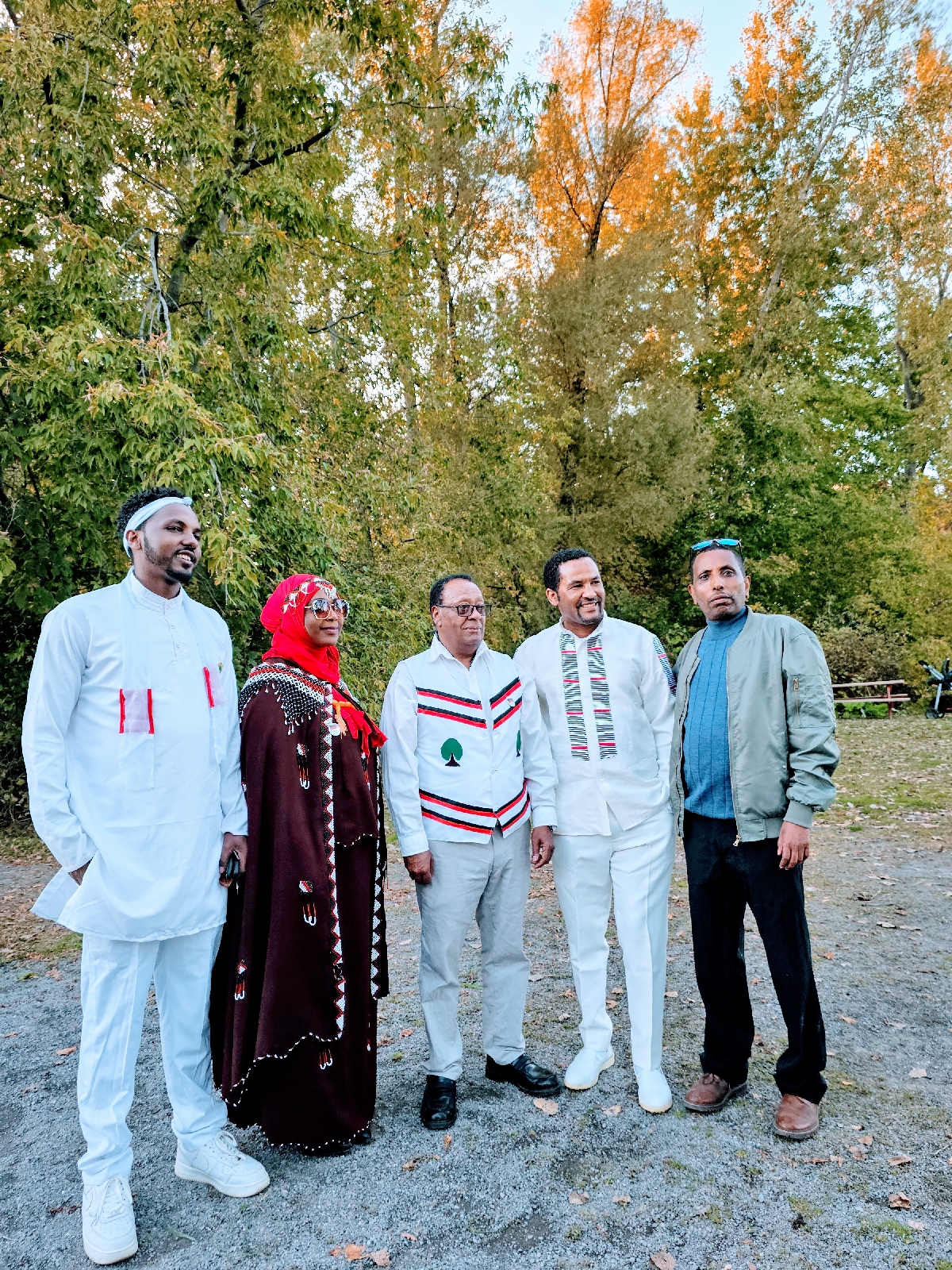

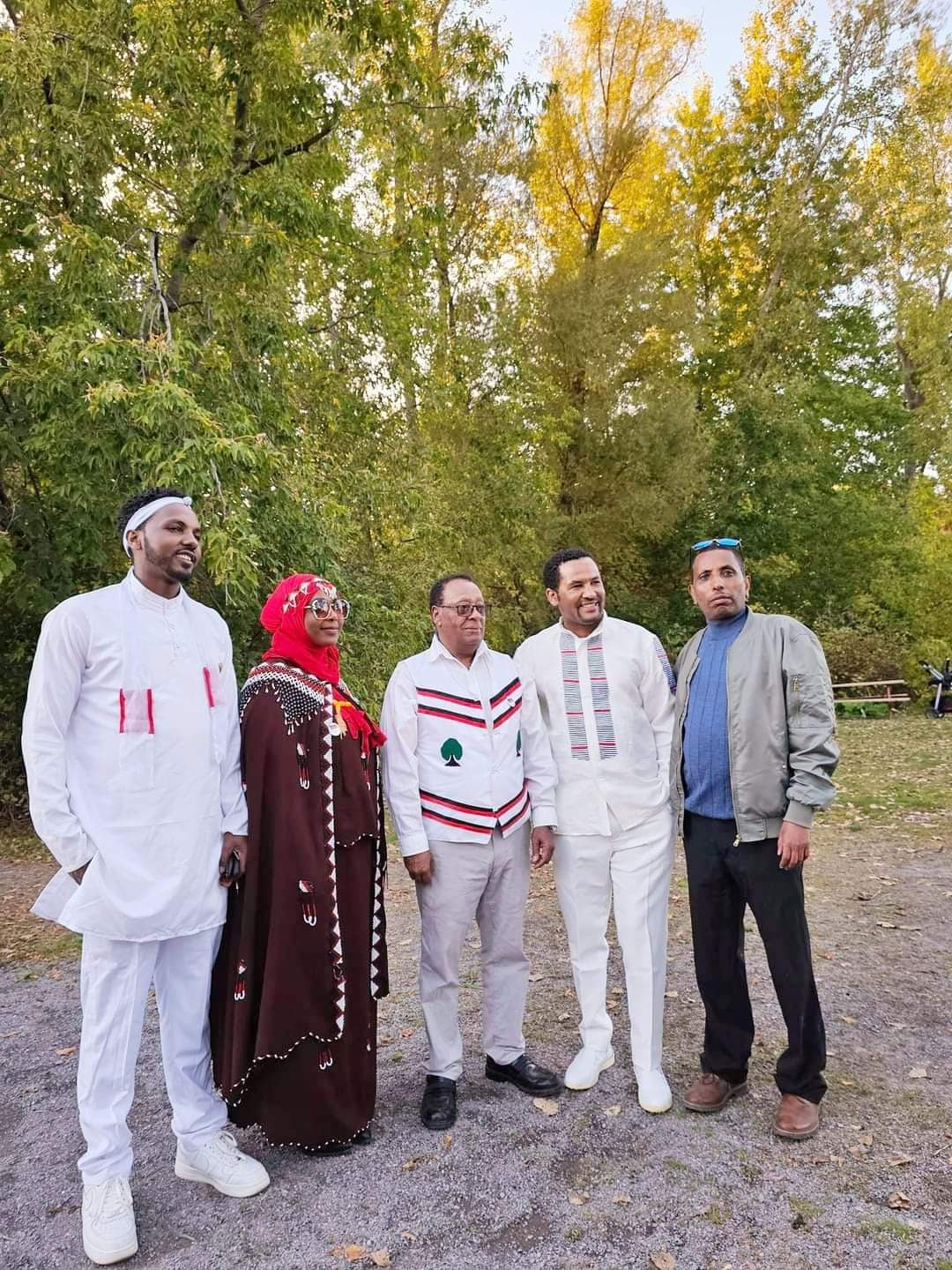




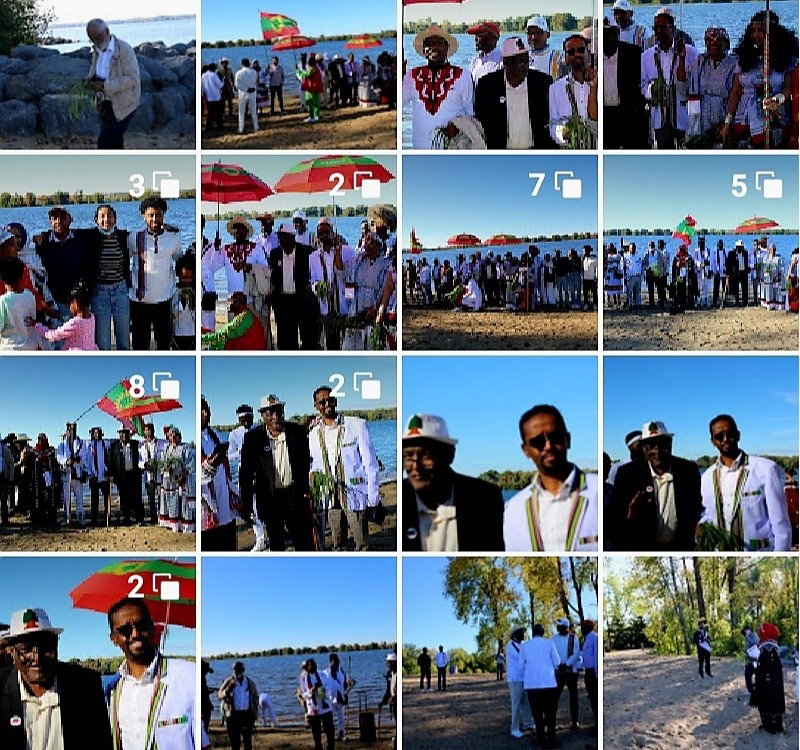
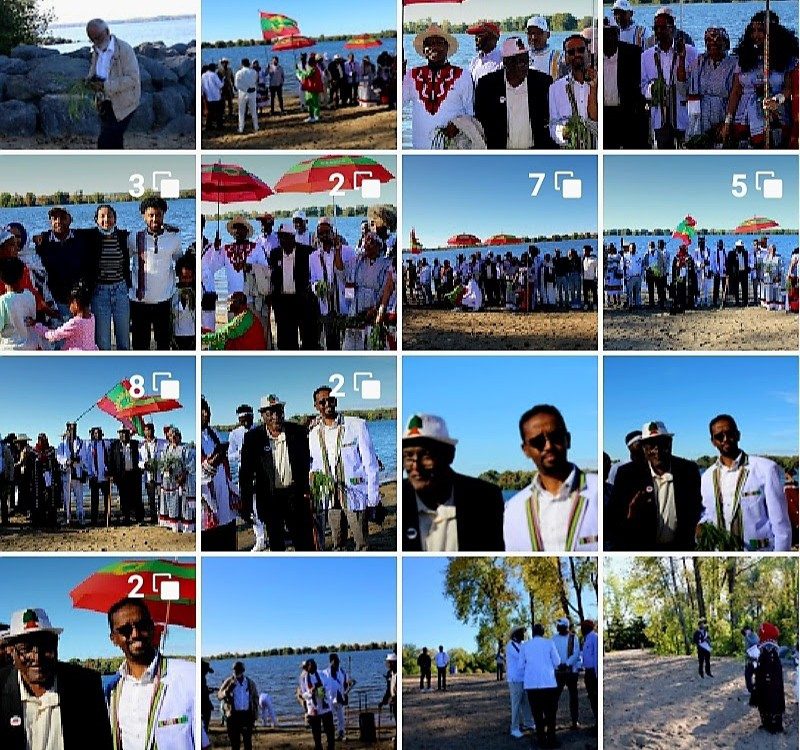






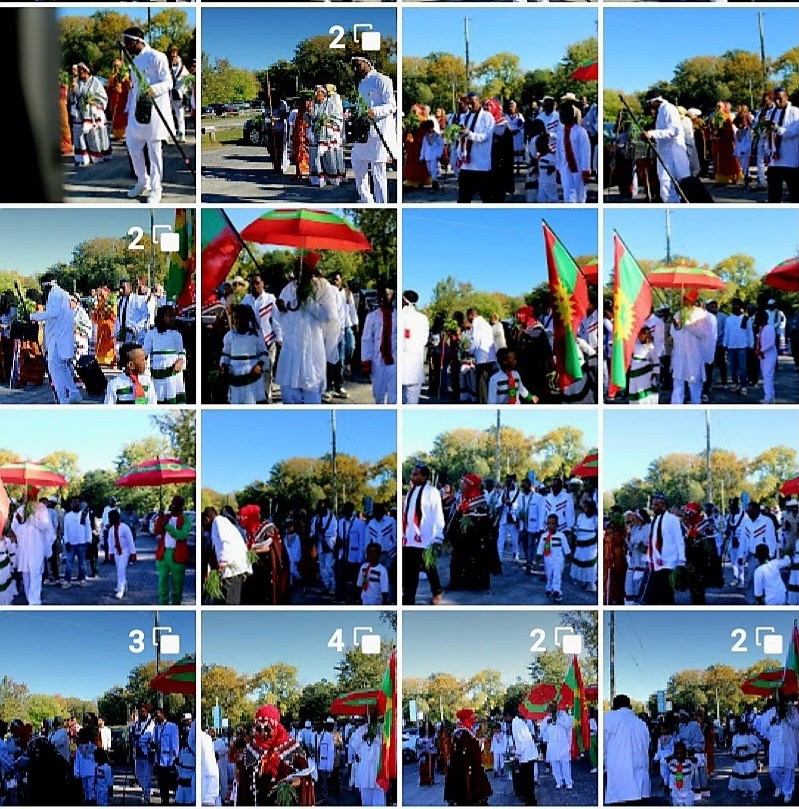














No comments:
Post a Comment